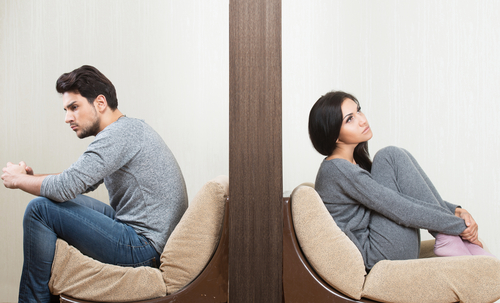Every couple is different and will make the decision to go to marriage counseling for distinct reasons. It would be inaccurate to suggest that marriage counseling unequivocally works for every couple. There are a variety of factors (e.g., the level of commitment each member gives to the therapeutic process, how the marriage counselor resonates with both members of the couple, etc.) that contribute to its efficacy. Marriage counseling is typically conducted with both partners present. It is a relatively short-term process, lasting between twelve to twenty sessions, in some cases longer. Most marriage counseling sessions last approximately fifty minutes long. The time between sessions will depend both on the availability of the mental health provider as well as the wants and needs of the couple. Although it is not an inevitability for all couples, marriage counseling can be highly effective for many.
How Can It Help?
The reasons why a couple decides to go to marriage counseling are wide-ranging. Psychology Today provide the following potential reasons why a couple may seek and benefit from marriage counseling:
- Poor and/ or lack of communication
- Trust has been broken
- Feelings of unease in the relationship (e.g., being aware that something is wrong but being unable to pinpoint the issue)
- Diminished emotional intimacy
- Diminished sexual intimacy
- Conflicts regarding child rearing and/ or blended families
- Infidelity
- Constant dysfunction during conflict (one or both members)
- Feeling stuck in unhealthy and/ or undesirable patterns
- Addressing and/ or sharing difficult to talk about information with the partner
- Processing situational circumstances that have devastated the relationship (e.g., loss of a child, prolonged unemployment, being diagnosed with a long-term illness, etc.)
The work that occurs during marriage counseling sessions is guided by the needs of the couple. Some couples attend marriage counseling as a means to gain better understanding of their partner. Aside from the above, there are many additional nuanced reasons why a couple may decide to go to marriage counseling.
Does It Really Work?
The reasons driving a couple to engage in marriage counseling can have a direct affect in its outcome and success. The American Association for Marriage and Family Therapy (AAMFT) reported the findings of a study that indicate, “of couples who try marriage counseling, 90% feel that their emotional health improves, and two-thirds report improvements in their physical health.” By nature of participating in marriage counseling both partners engage in shared emotional experiences via the therapy sessions, which can help to foster aligned relationship goals. The marriage counseling process is not always easy and at times sessions can be emotionally charged and elicit difficult to face feelings. However, the skills, tools and emotional awareness that can come from actively participating in marriage counseling can be both empowering and insightful.
Disclaimer:
The information above is provided for the use of informational purposes only. The above content is not to be substituted for professional advice, diagnosis, or treatment, as in no way is it intended as an attempt to practice medicine, give specific medical advice, including, without limitation, advice concerning the topic of mental health. As such, please do not use any material provided above as a means to disregard professional advice or delay seeking treatment.




